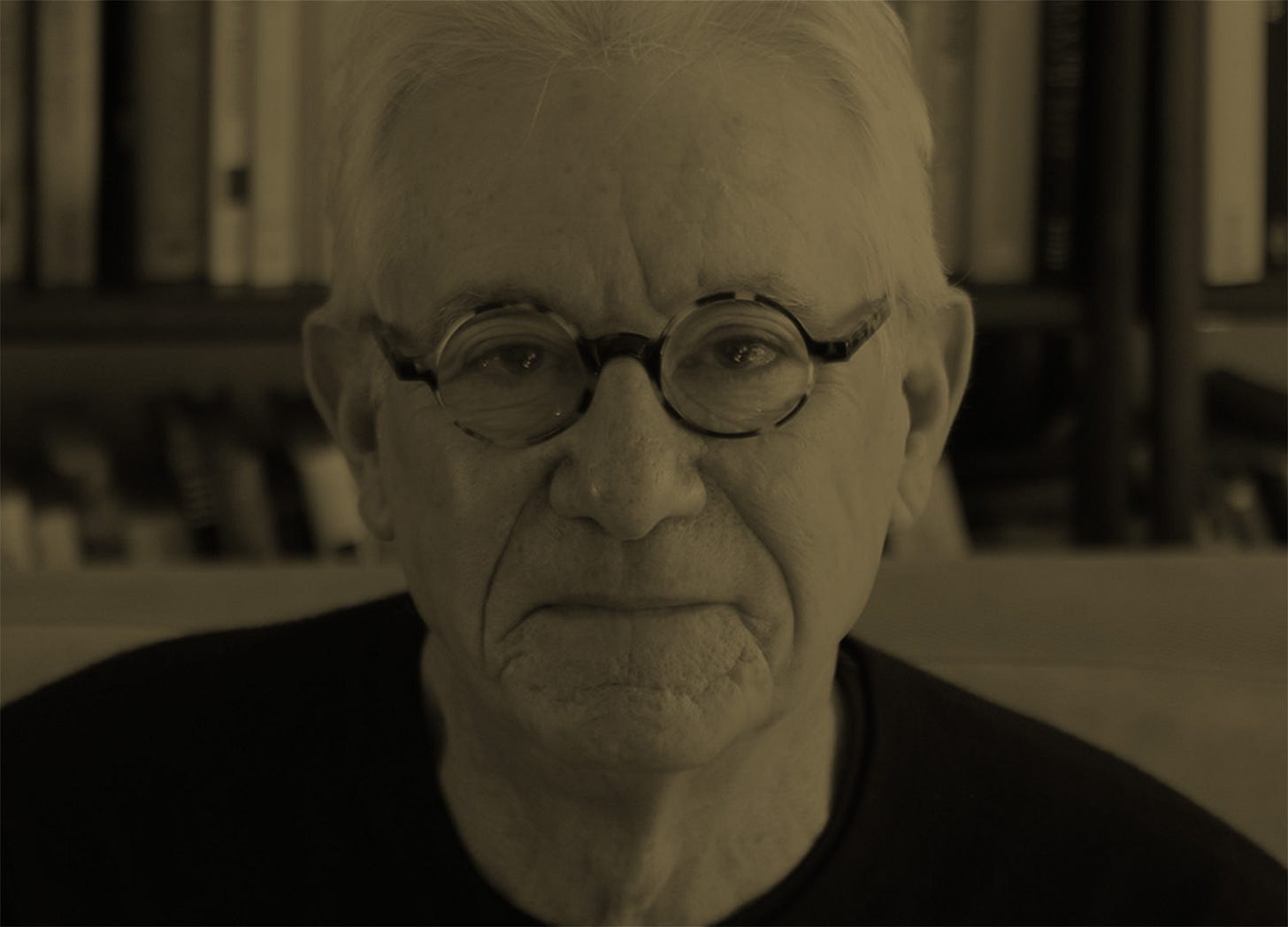The 'Days Between Stations' columns, Interview magazine 1992-2008: Jim Elledge's 'Sweet Nothings'
April 1994
A bunch of pop-crazy poems explore music' s utopian moments—precious, beautiful, and born to fade
Jim Elledge, an associate professor of English at Illinois State University, has put together a book called Sweet Nothings: An Anthology of Rock and Roll in American Poetry, and it defies expectations all over the place, shoots out in all directions. Reading it, I kept thinking of the two most striking musical moments in Jim Sheridan's film In the Name of the Father.
In the first, the Daniel Day-Lewis character, Belfast petty thief Gerry Conlon, is running from cops and soldiers. As he hurls himself down tiny, twisting back alleys, the camera jumping to follow him, the huge, devouring chords of Jimi Hendrix's "Voodoo Chile (Slight Return)" pursue him like a dinosaur in King Kong. Hendrix's guitar might be a mouth with fire coming out of it: his noise, its presence, is all over Conlon, breathing down his back, laughing in his face, tangling his feet. The scene is thrilling, scary, and the music just right—it adds so much. Still, that's all it does. The use of the Hendrix tune is a simple, conventional orchestration, the sort of thing you can find anywhere. You've seen it before. (For that matter, you've seen it in a sequence from The Harder They Come that uses the Maytals' "Pressure Drop" in precisely the same way.)
The second scene comes shortly after. Gerry Conlon's stolid, responsible father has decided to get his good-for-nothing son out of Belfast and send him to London, and Conlon's all for it: London, 1974, still full of hippies and squats, drugs and free love. He can't wait. He boards the ferry out of Belfast, meets a friend. They get beers, drop a coin in the jukebox, and as the first notes of Bob Dylan's "Like a Rolling Stone" come on, they hoist their glasses in a toast to their new adventure.
Here the music does not orchestrate what the actors are doing; they are orchestrating the music. The chase scene could exist without Hendrix; this scene could not exist without the sound on the screen. All Sheridan uses is the fanfare that opens the song—that thick, swirling, implacable rising tide of hope and fate, promise and threat. It's just Dylan's band taking its first steps into the song, as Conlon and his friend are taking their first steps; the music fades on the soundtrack as Dylan begins to sing. The moment is so strong, so emotionally lucid, that it can take you right out of the story, freezing this perfect moment, this tiny utopia that, over the next hour or so, will be torn to pieces.
Now, there are orchestrations like Sheridan's use of Hendrix among the poems in Sweet Nothings, as in Yusef Komunyakaa's "Hanoi Hannah," where a North Vietnamese female DJ harangues American GIs waiting for the next attack: "Her knife-edge song cuts/ deep as a sniper's bullet." When the music is simply used in a lot of the poems Elledge has chosen, you get the equivalent of bad rock criticism. What makes the book sing, though—what lets the anthology remind you again and again of your own experiences as a listener trying to hold on to one of those tiny musical utopias as it vanished—is instances where poets make room for a song to make its own claims in a new way.
There are dozens of examples, but the one that I keep turning back to is David Rivard's "Cures." A couple are sitting in their living room, after a fight that has left them disgusted, ashamed, and bored. They've turned the stereo up to drown out their thoughts; for some reason they're playing "Mystery Train," "where Elvis relates some dark to himself." The scene doesn't develop; it just sits there, like the pair, "each doubt a little larger/than desire..."
Rivard has nailed it with that line: as the couple listen to this song of movement, of chase and triumph, it freezes them, shows the depth of their paralysis. Each doubt is a little larger than desire, and the longer each doubt lasts, the larger it grows.
This wasn't what "Mystery Train" was for, presumably: to expose people to their own weakness. But people don't use songs according to anyone's intent. In the truest moments, songs, like microbes—without intent, without brains—use people. The real mystery Rivard's poem opens up has nothing to do with a train; it's about the way songs enter people's lives, the way people can't get them out. Their beauty, at its most intense, might be more a rebuke than anything else. In "Cures," it's the passion and the heedlessness of the music that define how much the two people listening to it have given up, how much they've given up on each other, on themselves—just as In the Name of the Father's jukebox notes, lifting like a curtain in a theater, define the preciousness of everything that's about to be taken away.
Originally published in Interview Magazine, April 1994



"The real mystery Rivard's poem opens up has nothing to do with a train; it's about the way songs enter people's lives, the way people can't get them out. Their beauty, at its most intense, might be more a rebuke than anything else."